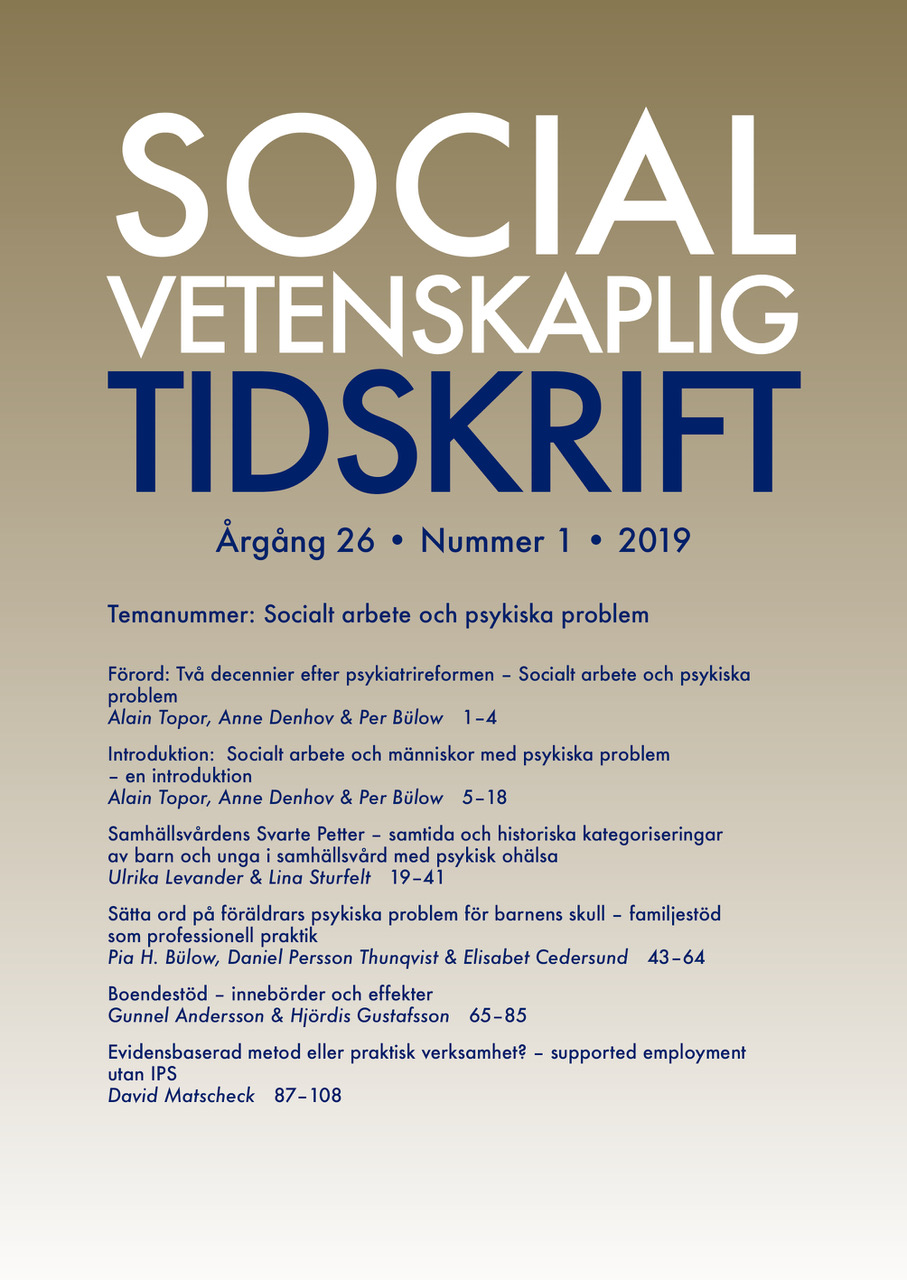Samhällsvårdens Svarte Petter
– samtida och historiska kategoriseringar av barn och unga i samhällsvård med psykisk ohälsa
DOI:
https://doi.org/10.3384/SVT.2019.26.1.2359Abstract
Drawing the short straw. Contemporary and historical categorizations of children in foster and residential care with mental health disorders
About 67 per cent of children placed in residential care in Sweden suffer from mental health disorders. Although the problem has been recognized for decades, the group’s access to sufficient mental healthcare is still lagging. In this article we examine contemporary and historical categorizations of mental health issues among children in foster and residential care. The study examines Swedish commission reports, government bills, and Children’s Acts published between 1902 and 2016 where the issue is discussed. Hereby, ”the history of the present”, and its implications for the targeted group, is analysed and problematized. Our findings show that continuous talk of preventive actions in the name of the all-embracing welfare state repeatedly has downplayed the group’s access to mental health interventions. Ever since the establishment of the child psychiatric field in the 1940s, a discursive battle about the public responsibility for the group is also raging. In the 1970s, coordination is articulated as the grand solution, but the problem still persists. Neither the contemporary child rights perspective nor the latest law regulations of forced coordination for children in care have changed the group’s underprivileged position. Whether the legal turn will finally lead to recognition of the group’s right to adequate mental health care remains an open question.
Downloads
Publicerad
Referera så här
Nummer
Sektion
Licens
Allt material i Socialvetenskaplig tidskrift publiceras sedan 2022 (Vol 28 Nr 2) med omedelbar öppen tillgång (open access), under Creative Commons-licensen CC BY 4.0. Upphovsrätten till innehållet tillhör respektive författare.
Allt innehåll i tidskriften är fritt tillgängligt utan kostnad och får fritt läsas, laddas ned, kopieras, delas, skrivas ut och länkas. När innehållet används måste författare, källa och licens anges. Författaren kan fritt göra sin publicerade text tillgänglig på institutionella och internetbaserade arkiv, exempelvis sitt lärosätes digitala arkiv eller andra tjänster för detta.
Inga publiceringsavgifter tas ut vid publicering i Socialvetenskaplig tidskrift.


